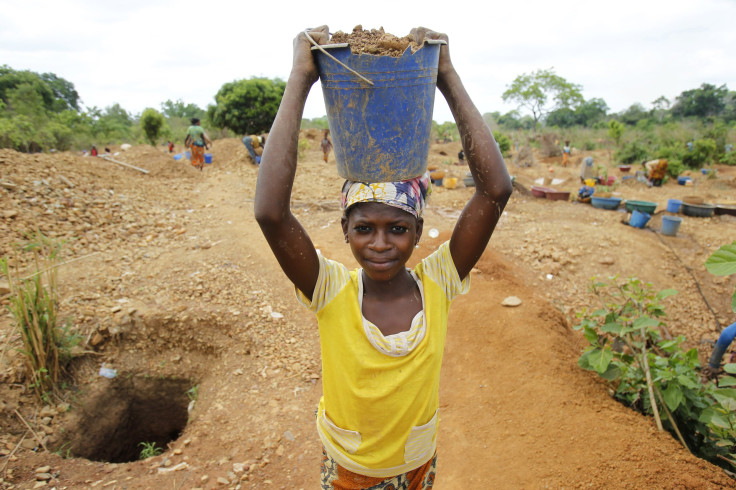Child Laborers Work In Ghana's Illegal Gold Mines: Human Rights Watch Report

International corporations are sourcing gold from child laborers working in unlicensed mines in Ghana, finds a new report from Human Rights Watch. Most are between the ages of 15 and 17, but researchers interviewed one boy as young as 9.
Ghana is the world’s seventh-largest gold producer. Foreign companies using industrial-style mining operations dominate the market. But about a third of the nation’s gold comes from so-called artisanal and small-scale mines -- generally illegal operations relying on simple technology, whose products also reach global markets. The report finds these mines encourage the use of child labor. Researchers estimate that people under the age of 18 make up several thousand of the roughly 500,000 to 1 million people working at small-scale mines.
Child laborers face major health and safety hazards: Heavy lifting causes pain and can lead to long-term spinal damage. Unregulated mines aren’t inspected, and are thus at higher risk of collapse. Some child miners develop respiratory disease from inhaling ore dust. They’re also exposed to high levels of mercury -- often without full knowledge of the risks. (Small-scale mines often use mercury to recover gold from ore.)
Human Rights Watch calls on the Ghanaian government to better enforce its ban on child labor and bring the informal mining sector under the purview of the state.
The group also casts some of the blame on international refiners that source from Ghana -- among them, Metalor and Produits Artistiques Métaux Précieux from Switzerland, Kaloti Jewellery International and Emirates Gold from the United Arab Emirates, Kundan from India and Rand Refinery from South Africa. “Several of these companies had varying weaknesses in their due diligence procedures, such as a lack of systematic child labor monitoring or a lack of transparency,” the report says.
Once gold is refined -- a market dominated by a small share of companies -- it gets traded to the jewelry and electronics industries, banks and other businesses.
© Copyright IBTimes 2025. All rights reserved.






















